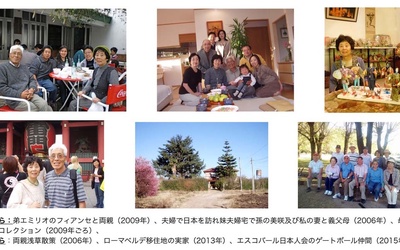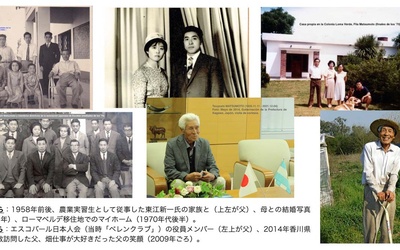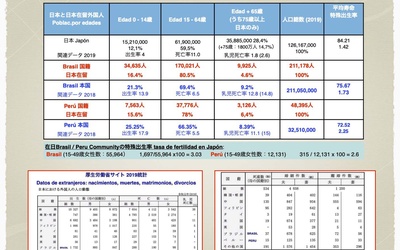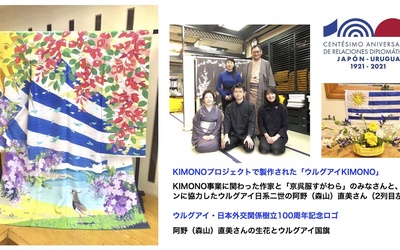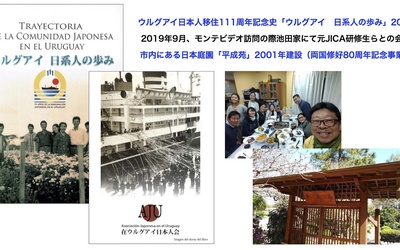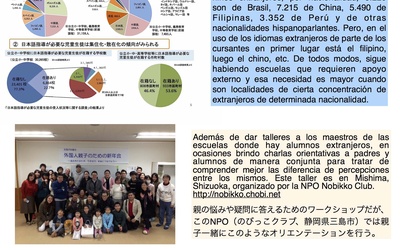The Nikkei of Latin America and Latino Nikkei
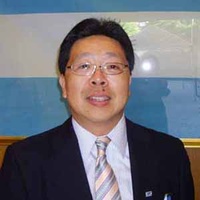
Lic. Alberto Matsumoto examines the many different aspects of the Nikkei in Japan, from migration politics regarding the labor market for immigrants to acculturation with Japanese language and customs by way of primary and higher education. He analyzes the internal experiences of Latino Nikkei in their country of origin, including their identity and personal, cultural, and social coexistence in the changing context of globalization.
Stories from this series
My Father's 64 Years in Argentina - Part 2
Feb. 14, 2022 • Alberto J. Matsumoto
Read Part 1 >> Homecoming and us in Japan My father's first visit to his hometown was in 1970, the year of the Osaka Expo. He was astonished at the tremendous growth and development of Japan. He changed to a Japan Airlines flight in Sao Paulo, Brazil, and drank a bottle of Johnnie Walker whiskey, which was difficult to obtain in Buenos Aires at the time. After arriving at Haneda Airport, he took the Shinkansen to Kagawa Prefecture in Shikoku …
My Father's 64 Years in Argentina - Part 1
Feb. 13, 2022 • Alberto J. Matsumoto
I have written many articles on this website, "Discover Nikkei," about Japanese people in Latin America and Japan. I have nothing but gratitude for having had the opportunity to write down stories that should be recorded, such as the " City of Flowers: Escobar " in the suburbs of Buenos Aires where I was born and raised, and my own experience serving in the Malvinas War . However, this is the last article in this series. In this final article, …
Are Japanese-Americans living in Japan reaching retirement age?
Nov. 15, 2021 • Alberto J. Matsumoto
A year and a half has passed since the COVID-19 pandemic began, but in Japan, seminars on the issue of aging among foreigners have been increasing recently. A symposium held in Nagoya at the end of March this year was a hybrid of face-to-face and online sessions, and I was invited as a speaker to talk about "old age for the elderly in the South American community in Japan." The symposium introduced examples of Korean and Chinese oldcomers, as well …
111 Years of the Japanese Community in Uruguay - Part 2: Floriculture, the Connection with Buenos Aires, and the Next Generation of Japanese Uruguayans
Oct. 29, 2021 • Alberto J. Matsumoto
Read Part 1 >> The industry in which Japanese people in Uruguay were most often engaged was floriculture, and it seems that until about 40 years ago, it was possible to make a good profit from the floriculture business. The city of Escobar, a suburb of Buenos Aires where I was born and raised, is also known as the "City of Flowers," and floriculture has been thriving since before the war. Escobar is located 50 kilometers north of the capital …
111 Years of History of the Japanese Community in Uruguay - Part 1: Characteristics of Japanese Migration
Oct. 28, 2021 • Alberto J. Matsumoto
Uruguay (official name: Oriental Republic of Uruguay) is a small country in South America with an area of just 170,000 square kilometers (about half the size of Japan) and a population of 3.5 million, roughly the same as the city of Yokohama. The country recently became a hot topic in Japan when former President Jose Mujica visited in 2016. At the time, former President Mujica gave a lecture at Tokyo University of Foreign Studies1 and was introduced on television as …
Issues surrounding non-attendance of foreign children and low rates of high school enrollment: A warning to Japanese children
Dec. 7, 2020 • Alberto J. Matsumoto
Currently, Japan has the highest enrollment and completion rates in the world, with nearly 100% of students completing compulsory education and 98% continuing on to high school. The university enrollment rate is 53.7%, which is not particularly high among developed countries, but when combined with the vocational school enrollment rate of 23.6%, over 80% of students are receiving higher education1. Regardless of the content or skill level, these figures show that Japan is nurturing human resources with the ability to …

